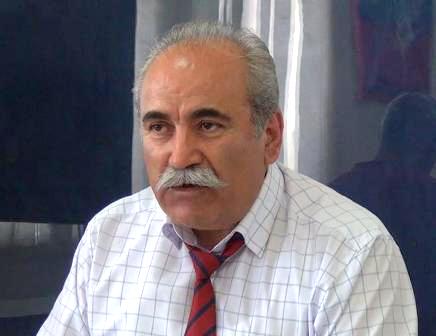 Speaking September 4 in Moscow at a joint session of defense ministers of Commonwealth of Independent States (CIS), the Shanghai Cooperation Organization (SCO) and the Collective Security Treaty Organization (CSTO) countries, Armenian Defense Minister David Tonoyan called for stronger joint efforts to prevent the threat of outbreak of wars and armed clashes in the region.
Speaking September 4 in Moscow at a joint session of defense ministers of Commonwealth of Independent States (CIS), the Shanghai Cooperation Organization (SCO) and the Collective Security Treaty Organization (CSTO) countries, Armenian Defense Minister David Tonoyan called for stronger joint efforts to prevent the threat of outbreak of wars and armed clashes in the region.
In his words, regional security cannot be ensured “autonomously” and outside the framework of the existing global security systems. ‘The aggravation of any regional problems directly affects international security as a whole. This applies not only to military-political issues, but also to the pandemic, which, as the experience of most countries has shown, has grown into a general security problem,” Tonoyan said.
Tonoyan said that the main task of the international community is to build a stable world based on prevention of emergence of new hotbeds of instability.
He said such instabilities emerge when a country tries to impose its regional geopolitical ambitions by using a full range of destructive approaches fueled by an expansionist ideology. According to him, building steady peace is possible only under the condition of conscientious and unswerving observance by all parties of their international obligations, as well as strengthening collective principles, primarily the UN mechanisms.
“We proceed from the fact that strict adherence to the norms and principles of international law plays a key role in preventing conflicts. The basis for resolving the existing disputes and disagreements between the states should be exclusively peaceful negotiations based on the principle of non-interference in internal affairs,” the Armenian defense minister said.
“The Republic of Armenia has always stood for the equal application of the norms of international law and the right of free choice, reasonable globalization and the architecture of international security based on refraining from the policy of force and maximalist approaches, rhetoric of hatred and militant statements,” Tonoyan stressed.
The head of the Armenian defense department noted with regret that the military-political situation in the South Caucasus is characterized by a high conflict potential, and also noted that recently there has been an exacerbation of contradictions in the region, “which, in our opinion, is a consequence of the expansion of ambitions of certain countries.”
He said regional conflicts have no military solution, and neither military rhetoric nor attempts to involve new states in these conflicts is acceptable for Armenia.
In this regard, Tonoyan added that the Russian presence in the region, as well as the deepening of military-political cooperation between Armenia and Russia, are the most important deterrent factor contributing to the preservation of regional stability and security.
“The sphere of strategic interests of the Republic of Armenia includes not only the Caucasus region, but the entire area of responsibility of the CSTO, as well as the Middle East and the Eastern Mediterranean. Proceeding from this, Armenia is interested in maintaining peace and stability in the listed regions,” Tonoyan said.
He also added that the fight against terrorism remains one of the highest priorities. “Highly assessing the role of the Russian Federation in the fight against international terrorism in the Syrian Arab Republic, the Republic of Armenia joined the process of providing humanitarian assistance to the Syrian people and restoring the country’s infrastructure,” he recalled.
Tonoyan stressed that Armenia intends to continue to make its feasible contribution to the UN-sanctioned undertakings of various formats, carried out in different geographic, climatic, ethno-confessional and operational environments.
“For this we are ready to use all our potential,” he added.
In conclusion of his speech, the head of the Armenian defense department noted that under the current conditions, the issue of further deepening and expanding multilateral defense cooperation, and, above all, within the framework of the CIS, SCO and the CSTO is of particular importance.
“This will allow us to consolidate responsible and consistent collective efforts to prevent the threat of the outbreak of wars and armed conflicts, as well as to ensure international and regional security,” concluded Tonoyan.







